In the vast pantheon of Norse gods, Freyja stands out as one of the most intriguing and multifaceted deities. As a Vanir goddess, she embodies love, fertility, and beauty, but her story is also tinged with tales of war, magic, and a deep connection to the afterlife.
Freyja Key Facts
| Parents | Njord and his sister-wife (unnamed) |
| Partners | Wife to Óðr, many affairs outside of marriage |
| Siblings | Freyr |
| Offspring | Hnoss and Gersemi |
| Tribe | Vanir |
| Old Norse name | Freyja |
| Other names | Freya, Lady, Vanadís |
| The God of | Love, War, Fertility, and Beauty |
| Ass. Animal | Cats and the boar Hildisvíni |
Name and Etymology
The name “Freyja” is a transparent representation of “lady” or “mistress” in Old Norse. This etymology stems from the Proto-Germanic feminine noun *frawjōn, which translates to ‘lady’ or ‘mistress’. This is further supported by its cognates in Old Saxon, frūa, and Old High German, frouwa (which is the precursor to the modern German word “Frau” meaning ‘lady’).
Interestingly, Freyja’s name is etymologically close to the god Freyr, which means ‘lord’ in Old Norse. This suggests that the name “Freyja” was originally an epithet, replacing a personal name that has now faded into obscurity. In today’s context, the modern Norwegian term “Frue” retains this meaning, resonating with the idea of a ‘lady’, much like the German “Frau”. Additionally, this is a popular Viking-inspired girl name even today.
Kennings – Other Names
Freyja, in her multifaceted roles and significance, has been referred to by various names and kennings. Here’s a list of some of her notable names, each accompanied by a brief description:
- Daughter of Njördr: Highlighting her lineage.
- Sister of Freyr: Emphasizing her close relationship with Freyr, another significant deity.
- Wife of Ódr: Signifying her marital bond.
- Mother of Hnoss: Denoting her role as a mother.
- Possessor of the Slain: Reflecting her dominion over half of the warriors who fall in battle.
- Goddess of the Vanir: Affirming her association with the Vanir tribe.
- Goddess Beautiful in Tears: A poetic reference to her beauty, even in sorrow.
- Goddess of Love: Underlining her dominion over love and passion.
Furthermore, her name has been intricately woven into kennings for gold. “Freyja’s Tears” and “Freyja’s Eyes” are poetic metaphors, drawing from tales where her tears turned into gold, symbolizing both her beauty and the preciousness of her emotions.
Ancient roots
While Freyja’s prominence is most notable in Norse mythology, traces of her essence can be found in older Germanic traditions. The name “Freyja” shares linguistic roots with the Old High German “Frouwa,” which also signifies a noble lady or a woman of high rank. This suggests that her veneration might predate the Viking Age, hinting at a deep-seated cultural reverence for this deity.
Freyja Origins
Freyja’s lineage is both intriguing and somewhat enigmatic. Born to the sea god Njörd, her mother remains a figure shrouded in mystery. While Njord’s sister-wife bore him Freyja and her twin brother Freyr, her name is not definitively known. Several theories suggest she might be Njörun or perhaps Nerthus. However, both these deities remain elusive figures in Norse mythology, with only fragments of information available about them.
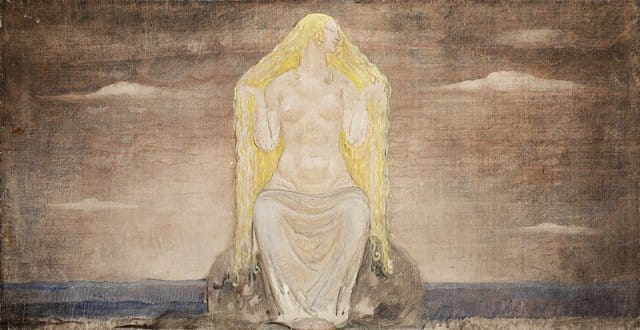
When Freyja and her family moved to reside among the Aesir, her mother faced rejection. The Aesir were unwilling to welcome her, primarily due to her being Njord’s sister. This reflects the cultural differences and taboos between the two tribes, with the Aesir being particularly stringent about familial relations.
It’s worth noting that while Freyja and her family are of the Vanir tribe, they came to live with the Aesir under unique circumstances. Following the Aesir-Vanir war, a conflict between the two dominant tribes of gods in Norse mythology, there was a truce. As part of the peace agreement, there was an exchange of hostages, which saw some Vanir deities, including Freyja, Freyr, and Njord, moving to reside with the Aesir. This exchange was symbolic of the newfound harmony between the two tribes and played a pivotal role in shaping the narratives of many Norse myths.
Freyja’s twin brother, Freyr, is another significant figure in Norse mythology. As siblings, they share many attributes and responsibilities, particularly in their association with fertility and prosperity.
Freyja Family and Relationships
Freyja’s personal relationships are a tapestry of love, mystery, and profound connections. Central to her narrative is her bond with Óðr, a figure who remains somewhat elusive in Norse mythology.
Óðr
Freyja’s marriage with Óðr is a tale of deep love intertwined with absence and longing. Óðr, whose name in Old Norse means “frenzy” or “ecstasy,” is often absent, leading Freyja on a perpetual quest to find him. Her search is not just a physical journey but also an emotional odyssey, marked by her golden tears of sorrow. This narrative of separation and yearning symbolizes the cyclical nature of love, with its peaks of joy and valleys of heartbreak.
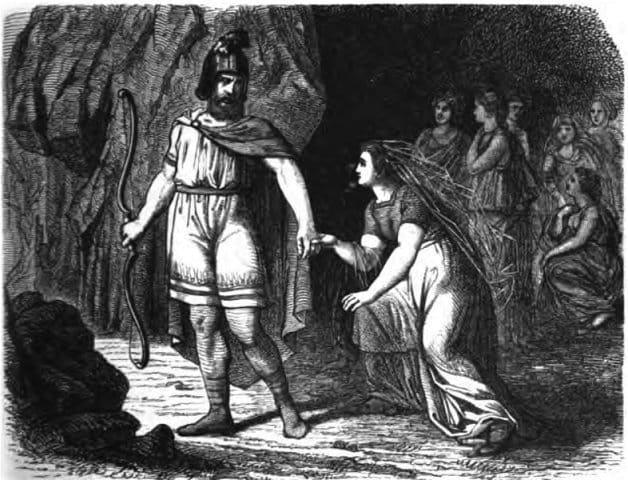
The identity of Óðr has been a subject of much speculation. Given the etymological similarities between the names Óðr and Odin, and the shared deep connection both Freyja and Odin have with the mystical art of Seidr, some theories suggest that Óðr might not be a separate deity at all. Instead, he could be another aspect or manifestation of Odin himself. However, this theory, while intriguing, remains a topic of debate among scholars and enthusiasts.
Hnoss and Gersemi
Hnoss and Gersemi, the offspring of Freyja and Óðr, are radiant figures in Norse mythology. Their names, synonymous with “treasure” or “jewel,” are reflective of their esteemed status. Hnoss, often described as “the most beautiful,” is a testament to Freyja’s attributes of beauty and love. Gersemi, whose name translates to “jewel,” is another embodiment of the preciousness and beauty that Freyja represents. While not central figures in many myths, their very existence and the meanings of their names emphasize the importance of love, beauty, and value in the Norse cosmos.
Freyja Roles And Responsibilities
Roles
Freyja’s dominion in Norse mythology is vast and varied. As a Vanir goddess, she is intrinsically linked with fertility and prosperity. Her association with fertility is not just limited to human procreation but extends to the land, ensuring bountiful harvests and the overall well-being of the community. This role makes her a central figure in agricultural societies, where the yield of the land directly impacts survival and prosperity.
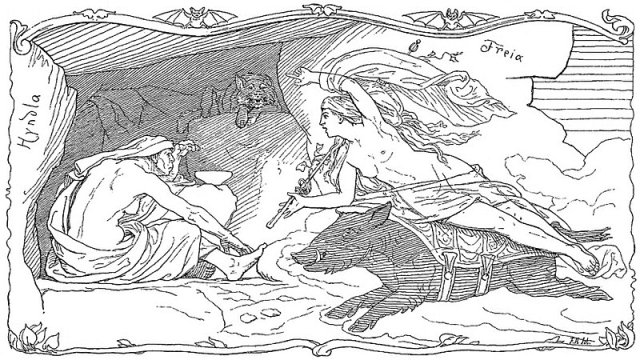
Furthermore, her role as a deity of love and beauty is well-recognized. She embodies the most profound human emotions, from passionate love to the depths of sorrow. Her influence in matters of the heart makes her a beacon of sensuality and allure, both among the gods and mortals.
Another significant role, and one that is a personal belief of mine, is her association with the Valkyries. While it’s a widely accepted notion that Freyja has a connection with these warrior maidens, I hold the view that she might be their leader. This perspective paints Freyja in a light of authority and discernment among the divine entities that choose the bravest fallen warriors.
Responsibilities
One of Freyja’s most significant responsibilities revolves around her involvement with the fallen Viking warriors. The popular belief is that she “chooses half the dead” from those who fall in battle. This has led many to believe that she takes these warriors to her realm, Fólkvangr. However, the rationale behind amassing such a vast number of fallen warriors remains a mystery.
My belief offers a different perspective on this. As the potential leader of the Valkyries, Freyja’s responsibility of choosing the slain is not for her own benefit but on behalf of Odin. She gets the privilege of the first pick, selecting the most valiant before the other Valkyries make their choices. These chosen warriors are then taken to Valhalla, Odin’s hall, in preparation for the events of Ragnarok. This interpretation suggests that Freyja’s role in choosing the slain is not to build her own army but to ensure that the bravest warriors stand alongside the gods during the final battle.
Depiction and Characteristics of Freyja
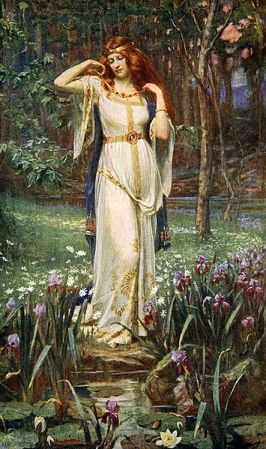
Freyja, a prominent figure in Norse mythology, is characterized by her multifaceted nature, encompassing various roles and attributes that make her a revered deity.
Physical Attributes
Freyja is consistently described as a woman of exceptional beauty. Her golden hair, often depicted as cascading down her back, serves as a dual symbol: it represents her radiant allure and her close association with gold. This connection to gold is further emphasized by the Brísingamen necklace she wears. This intricate piece of jewelry is not just an adornment; it’s a symbol of her desirability and the significant lengths she undertook to obtain it.
Personality and Traits
Freyja’s character goes beyond her physical beauty. She embodies love and sensuality, making her a figure of desire among gods and giants. But she’s far from passive. Freyja showcases her independence and determination in various myths, whether it’s in her quest to retrieve the Brísingamen necklace or her search for her lost husband Óðr.
Her prowess isn’t limited to matters of the heart. Freyja is deeply connected to seidr, a potent form of Norse magic. Her mastery over this magic is so profound that even Odin, the chief of the Aesir tribe, sought her guidance to harness its power. This association with seidr also positions her as a mediator between life and death. It’s said that half of the warriors who fall in battle are chosen by Freyja to reside in her hall, Sessrúmnir. This hall is located in or near Fólkvangr, a place where Freyja presides.
Perception Among Gods and Mortals
In the realm of gods, Freyja holds a position of both respect and desire. Her dual roles, as a goddess of love and a master of seidr, make her a pivotal figure in numerous Norse tales. Among mortals, she’s revered as a symbol of hope, love, and fertility. Couples seeking love and women expecting children often invoke her blessings.
However, her role isn’t solely tied to creation and love. Freyja’s connection to the afterlife casts her in a somber role as a guide for fallen warriors, emphasizing her understanding of the cyclical nature of life and death. This balance between love and war, creation and destruction, underscores the complexity of her character in Norse mythology.
Gullveig: Another Name for Freyja?
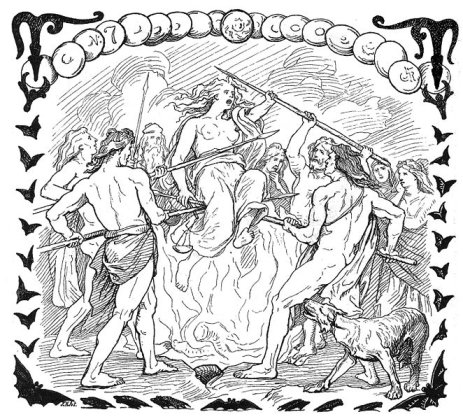
In the intricate web of Norse mythology, Gullveig stands out as a mysterious and transformative figure. Her story, deeply intertwined with the legendary conflict between the Æsir and Vanir, offers a glimpse into the complexities of power, magic, and the allure of gold.
Gullveig’s Arrival and Transformation
Gullveig, whose name resonates with the allure of gold, made her way to Odin’s hall. There, she faced a harrowing ordeal. Speared by the Æsir and subjected to the flames not once but thrice, she emerged each time reborn. This act of rebirth, a testament to her resilience and power, marked a significant transformation. From Gullveig, she took on the name Heiðr, becoming a völva, a seeress with profound knowledge and the ability to perform great feats of magic.
The Freyja Connection
The parallels between Gullveig and Freyja are hard to ignore. Freyja, with her tears of gold and her possession of the Brísingamen necklace, the most coveted jewel in Norse tales, shares Gullveig’s association with gold. Furthermore, Freyja’s deep knowledge of seidr, a form of Norse magic, aligns her with Heiðr’s magical prowess. In fact, the Ynglinga Saga credits Freyja with introducing seidr to the Aesir and even teaching it to Odin.
Given these striking similarities, it’s reasonable to deduce that Gullveig and Freyja might be the same deity, manifesting in different forms or narratives. Their shared connection to magic and material wealth, particularly gold, strengthens this theory. Gullveig’s transformation into Heiðr and her practice of seidr further cements the idea that she and Freyja, the goddess who wept golden tears and held deep knowledge of seidr, are one and the same.
Implications and Consequences
Gullveig’s treatment at the hands of the Æsir, combined with the allure and potential corruption of gold, might have been the catalyst for the Æsir–Vanir War. Her arrival and subsequent rebirth as Heiðr signify not just personal transformation but also the shifting dynamics between the two tribes of gods. The intertwining of magic, wealth, and power, as epitomized by Gullveig and Freyja, offers a profound commentary on the values, conflicts, and narratives of Norse mythology.
Freyja Symbols, Artifacts, and Animals
Freyja, with her multifaceted roles and significance, is associated with a myriad of symbols, artifacts, and animals that further amplify her essence in Norse mythology.
Cats
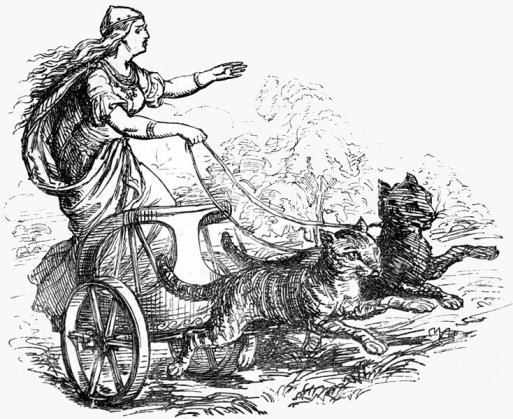
Two majestic cats, believed to be of the Norwegian Forest Cat breed, pull Freyja’s chariot. These cats are not just symbols of grace and independence but also resonate with Freyja’s own nature. Cats, in many cultures, are seen as creatures of mystery and magic, and their association with Freyja underscores her connection to the mystical arts, especially Seidr. The choice of the Norwegian Forest Cat breed, with its regal appearance and strong Norse roots, further cements this association.
In the centuries following the Viking Age, the perception of cats, especially in medieval Europe, underwent a significant transformation. They were largely viewed with suspicion and were often associated with witches and heretics. A prevalent belief was that the devil could transform himself into a black cat, further solidifying the cat’s reputation as a creature of the occult. This stark contrast between the revered cats of Freyja’s chariot and the maligned cats of medieval folklore showcases the evolving cultural perspectives and beliefs surrounding these enigmatic creatures.
However, since Freyja was likely a völva (Norse witch) maybe the view on cats wasn’t far off the mark.
Boar
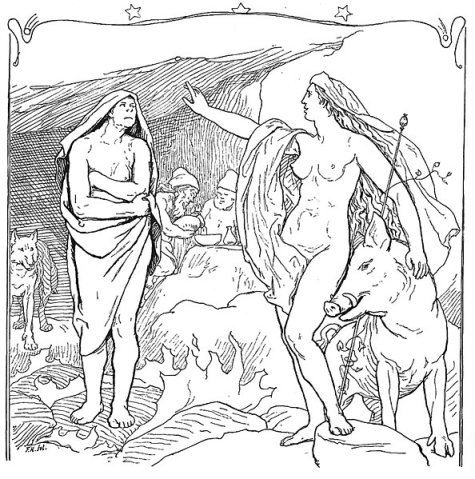
Freyja’s boar Hildisvíni (Battle-swine) is a symbol of protection and might. The boar, in Norse and other ancient cultures, is often seen as a creature of war and strength. Its association with Freyja, a goddess of love and beauty, showcases the duality of her character. Funny enough, her twin brother, Freyr, also possesses a boar, Gullinbursti. This golden boar, possibly made of gold, not only strengthens the bond between the siblings. Moreover it emphasizes the association of the family with wealth and prosperity. The golden nature of Gullinbursti further ties back to Freyja’s connection with gold, especially the tales of her golden tears.
Feather Cloak
Freyja’s magical feather cloak (Old Norse: fjaðrhamr) made of hawk’s feathers, is a testament to her prowess and versatility. This cloak grants her the ability to transform into a hawk (or possibly any bird), allowing her to traverse the nine realms swiftly. It symbolizes freedom, perspective, and transcendence. The hawk, a bird of prey with keen vision, resonates with Freyja’s attributes of insight and wisdom.
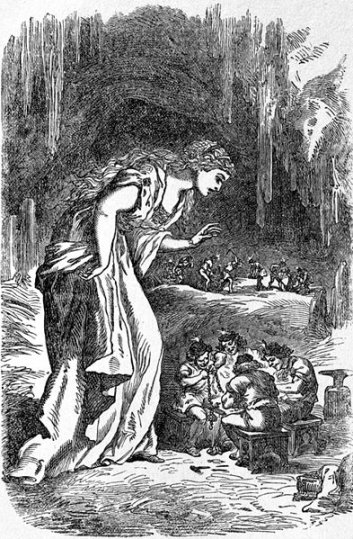
Brísingamen Necklace
The Brísingamen necklace is perhaps one of the most iconic symbols associated with Freyja. This magnificently beautiful necklace, whose name can be translated to “a glowing torc” or “fire jewelry,” is not just a testament to her beauty but also her desires and ambitions. The tales surrounding how she acquired this necklace, usually trading sleeping with the dwarves who created it, shows her immense desire for it.
Play Fun Norse Quiz
Is this article making you even more curious about Norse gods and goddesses? You can satisfy your curiosity by playing a fun Norse mythology quiz. This way, you can test your knowledge about Norse gods and goddesses, as well as fill in some gaps. Good luck and have fun playing!
Don’t forget to try our other games as well!
Myths about Freyja
Freyja, with her myriad roles and attributes, features prominently in several Norse myths. These tales not only highlight her desirability and power but also offer insights into the dynamics of the Norse pantheon and the values of the time.
The Aesir-Vanir War
The Aesir-Vanir war, a legendary conflict between two dominant tribes of gods, saw Freyja playing a pivotal role in the aftermath. As the dust of war settled, a truce was struck, leading to an exchange of hostages to ensure peace. Freyja, along with her father Njord and brother Freyr, was sent to the Aesir as a guarantee. In return, the Æsir sent Hoenir and Mimir to the Vanir. This exchange was not just symbolic but also set the stage for Freyja’s various adventures and interactions with the Æsir.
The Fortification of Asgard
After the war, the gods sought to fortify Asgard with a protective wall. A giant mason offered his services, but his price was steep: he demanded Freyja as his wife, along with the sun and the moon. The gods, desperate for protection yet unwilling to part with Freyja, devised a cunning plan to avoid paying the giant. This tale underscores Freyja’s unparalleled desirability and the lengths the gods would go to keep her.
Thrymskviða: Thrym’s Desire
In the Thrymskviða, the giant Thrym steals Thor’s hammer and demands Freyja as his bride in exchange for its return. Once again, Freyja’s allure becomes the focal point of a narrative. While she plays a smaller role in this tale, her presence is a testament to her status as a coveted figure in the Norse cosmos.
Brisingamen: Freyja’s Precious Necklace
The Brisingamen necklace, a symbol of unparalleled beauty and allure, has been at the heart of several tales involving Freyja.
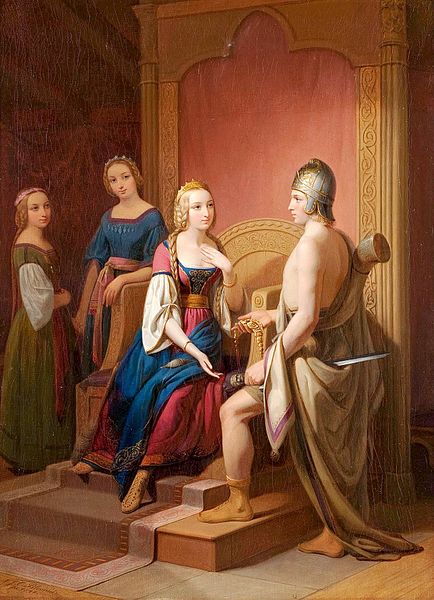
The origins of how Freyja came to possess this exquisite piece of jewelry are steeped in desire and determination. Upon encountering four dwarves who had crafted, or were in the process of crafting it, Freyja was instantly captivated. Recognizing her desire, the dwarves set their price: a night with each of them in exchange for the necklace. Without hesitation, Freyja agreed, showcasing her agency and determination to obtain what she coveted.
However, the necklace’s allure also made it a target. As recounted in the Húsdrápa, a skaldic poem partially preserved in the Prose Edda, Freyja woke up one day to find her cherished Brísingamen missing. Distraught, she sought the assistance of the vigilant god Heimdallr to help her retrieve it. Their search led them to Loki (hardly surprising), who, in a bid to escape with his prize, had transformed himself into a seal. However, Heimdallr took on the same form, resulting in a fierce battle between the two at Singasteinn. After a prolonged struggle, Heimdallr emerged victorious, ensuring the necklace’s return to its rightful owner.
This legendary skirmish wasn’t just a thrilling tale; it also had lasting implications for the titles of the gods involved. Snorri Sturluson, in his Skáldskaparmál, cites this narrative as the reason Heimdallr came to be known as the “Seeker of Freyja’s Necklace” and Loki as the “Thief of Brísingamen”.
Demonizing pagans by Christians?
To my knowledge, the only source for how Freyja actually obtained her necklace is the Saga of Olaf Tryggavason. It was collected and written down by two Christian priests in the late 14th century. Like Snorri Sturluson also has been accused of, their retelling of the story might have been colored by their general view on the pagan gods.
Mentions in Ancient Texts
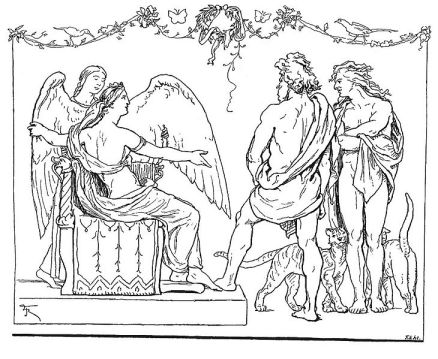
Freyja holds a significant position in Norse mythology, often regarded as one of the most important deities in the Norse pantheon. Her roles span various domains, from love and fertility to war and death. This wide range of attributes has led to her extensive mention in numerous ancient texts, underscoring her central role in Norse traditions and stories. In the following sections, we will explore these references to gain a deeper understanding of Freyja’s prominence in Norse lore.
Poetic Edda
Völuspá
In Völuspá, Freyja is referred to as “Óð’s girl,” highlighting her relationship with her husband, Óðr. The stanza narrates an episode where Freyja was promised to an unnamed builder, later identified as a jötunn, who is eventually slain by Thor.
“Völuspá contains a stanza that mentions Freyja, referring to her as ‘Óð’s girl’; Freyja being the wife of her husband, Óðr.”
Grímnismál
In Grímnismál, Odin, disguised as Grímnir, reveals that Freyja allocates seats to half of the warriors slain in battle in her hall Fólkvangr, while Odin claims the other half.
“Every day Freyja allots seats to half of those that are slain in her hall Fólkvangr, while Odin owns the other half.”
Lokasenna
Lokasenna features a heated exchange between Loki and Freyja. Loki accuses almost every goddess of infidelity, leading to a fierce back-and-forth with Freyja. The poem also mentions a gathering attended by Freyja and other deities.
“Loki tells her to be silent, and says that he knows all about her—that Freyja is not lacking in blame, for each of the gods and elves in the hall have been her lover.”
Þrymskviða
This poem narrates the tale of Thor’s missing hammer and how Loki borrows Freyja’s cloak of feathers to retrieve it. The narrative also includes Thor dressing up as Freyja to deceive the jötunn Þrymr.
“Loki flies away in the whirring feather cloak, arriving in the land of Jötunheimr.”
Oddrúnargrátr
In Oddrúnargrátr, Borgny receives assistance from Oddrún during childbirth. In gratitude, Borgny invokes various deities, including Freyja.
“Oddrún helps Borgny give birth to twins. In thanks, Borgny invokes vættir, Frigg, Freyja, and other unspecified deities.”
Hyndluljóð
This poem centers around Freyja assisting Óttar in discovering his ancestry. Freyja transforms Óttar into her boar, Hildisvíni, to extract information from the jötunn Hyndla.
“Freyja speaks throughout the poem, and at one point praises Óttar for constructing a hörgr (an altar of stones) and frequently making blót (sacrifices) to her.”
Prose Edda
Gylfaginning
In Gylfaginning, Freyja’s lineage, her hall Sessrúmnir, and her association with love and beauty are discussed. The narrative also recounts the story of the unnamed builder, similar to the Völuspá account.
“Freyja has a dwelling in the heavens, Fólkvangr, and that whenever Freyja ‘rides into battle she gets half the slain, and the other half to Odin.'”
Skáldskaparmál
In the Skáldskaparmál, various poetic means to refer to Freyja, her attributes, and her relationships. It also recounts the tale of the jötunn Hrungnir’s visit to Asgard and his interactions with Freyja.
“Freyja is the most approachable one for people to pray to, and from her name is derived the honorific title whereby noble ladies are called fruvor [noble ladies].”
Heimskringla
Ynglinga saga
This saga offers a euhemerized account of the gods, including Freyja. It details her lineage, her introduction of seiðr to the Æsir, and her significance in naming conventions for noble women.
“Freyja keeps up the sacrifices and becomes famous. The saga explains that, due to Freyja’s fame, all women of rank become known by her name—frúvor (‘ladies’).”
Other
Freyja is also mentioned in various sagas such as Egils saga, Njáls saga, Hálfs saga ok Hálfsrekka, and Sörla þáttr. These sagas further illustrate the widespread reverence and significance of Freyja in Norse literature and culture.
Frequently Asked Questions
Freyja is the goddess of love, fertility, and beauty in Norse mythology.
Freyja’s children are Hnoss and Gersemi.
Freyja belongs to the Vanir tribe.
Yes, cats and the boar Hildisvíni are closely associated with Freyja.
The Brísingamen necklace symbolizes Freyja’s beauty and desirability.
Yes, Freyja was adept in seidr, a form of Norse magic.
Gallery
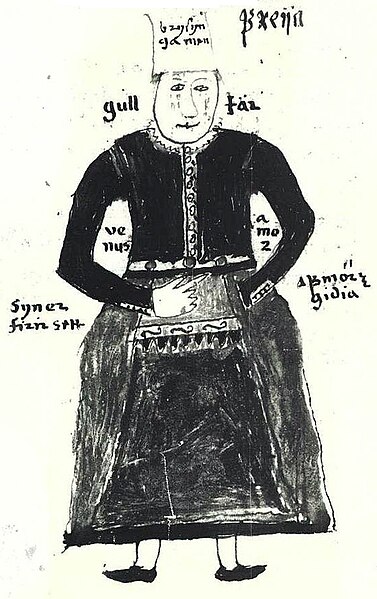 An illustration of the Norse goddess Freyja, from an Icelandic 17th century manuscript. A scan of a black and white photography.
An illustration of the Norse goddess Freyja, from an Icelandic 17th century manuscript. A scan of a black and white photography.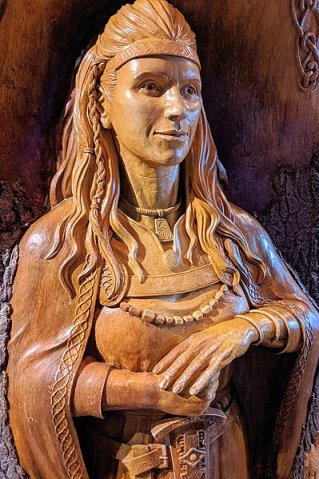 Freyja Statue
Freyja Statue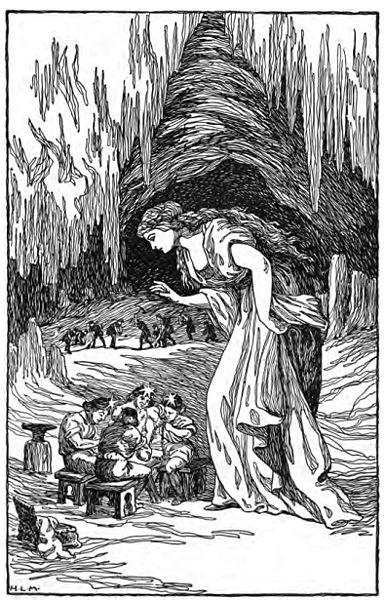 Freyja in the Cave of the Dwarfs
Freyja in the Cave of the Dwarfs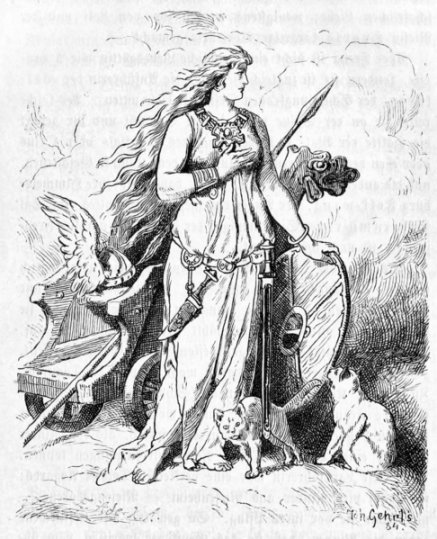 Freyja with her cats.
Freyja with her cats.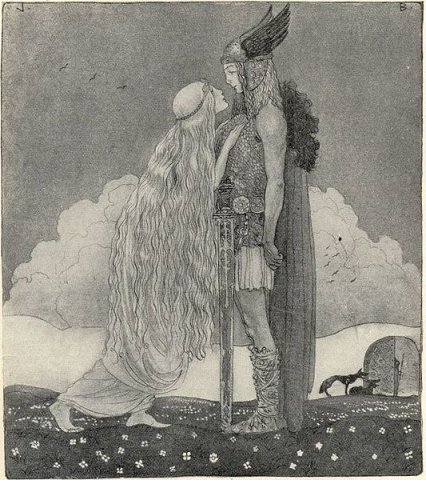 Freyja and Svipdag
Freyja and Svipdag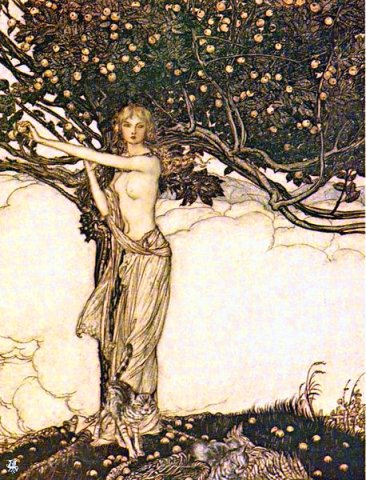 One of en:Arthur Rackham’s illustrations from en:1910 to Wagner’s en:Das Rheingold.
One of en:Arthur Rackham’s illustrations from en:1910 to Wagner’s en:Das Rheingold.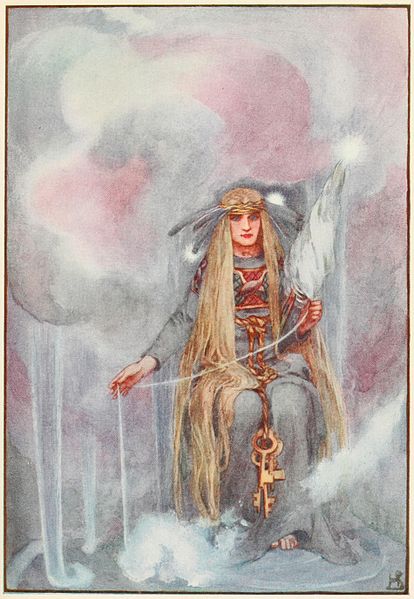 Freya, Queen of the Northern Gods, A Book of Myths
Freya, Queen of the Northern Gods, A Book of Myths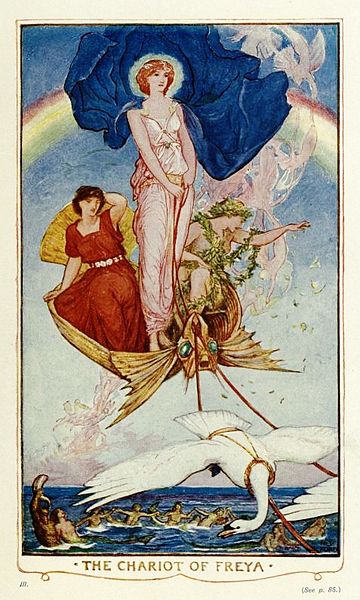 Illustration by H.J. Ford for Andrew Lang’s Tales of Romance, 1919. “The Chariot of Freya”
Illustration by H.J. Ford for Andrew Lang’s Tales of Romance, 1919. “The Chariot of Freya”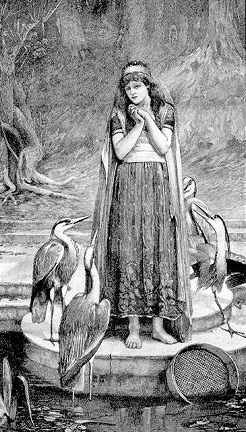 Freya with herons. Artist: Sander J. Nystrøm, 1893.
Freya with herons. Artist: Sander J. Nystrøm, 1893.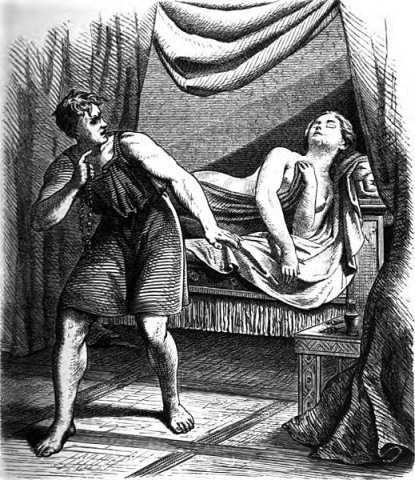
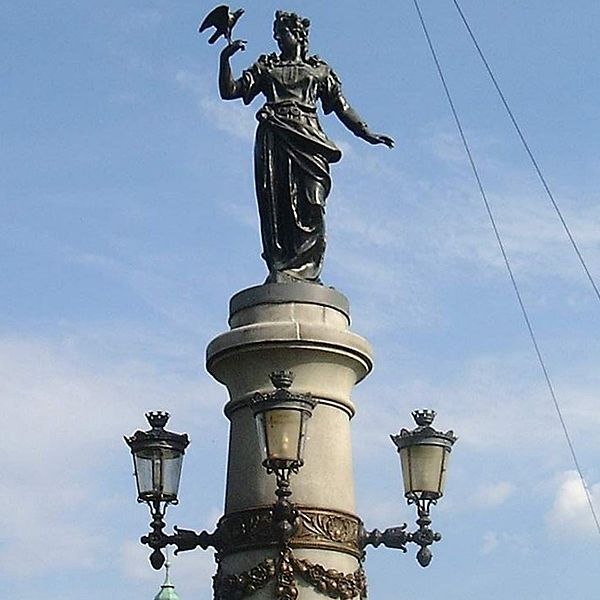 Freyja’s Statue
Freyja’s Statue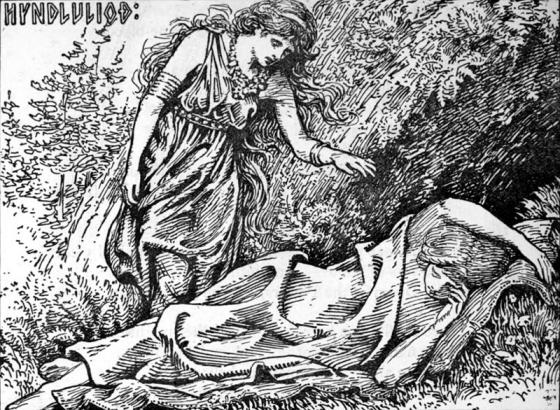 An illustration to Hyndluljóð. The list of illustrations in the front matter of the book gives this one the title Freyja awakes Hyndla.
An illustration to Hyndluljóð. The list of illustrations in the front matter of the book gives this one the title Freyja awakes Hyndla.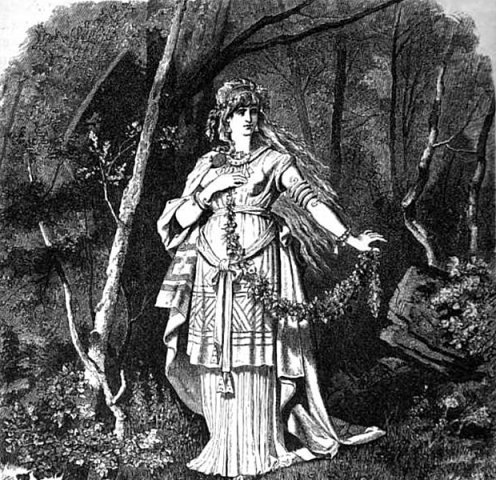 The goddess Freyja, in the woods.
The goddess Freyja, in the woods.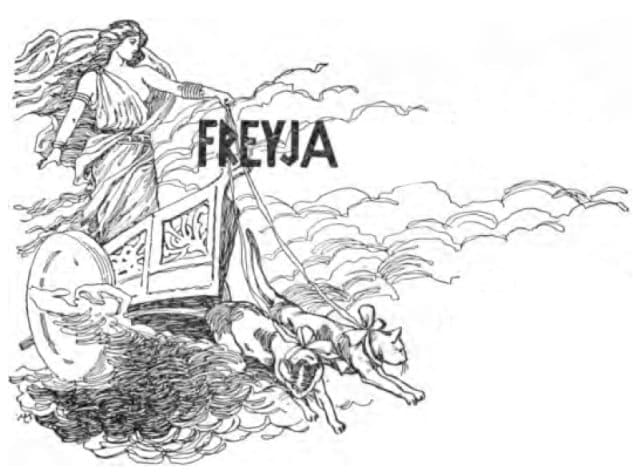 Freyja in her chariot
Freyja in her chariot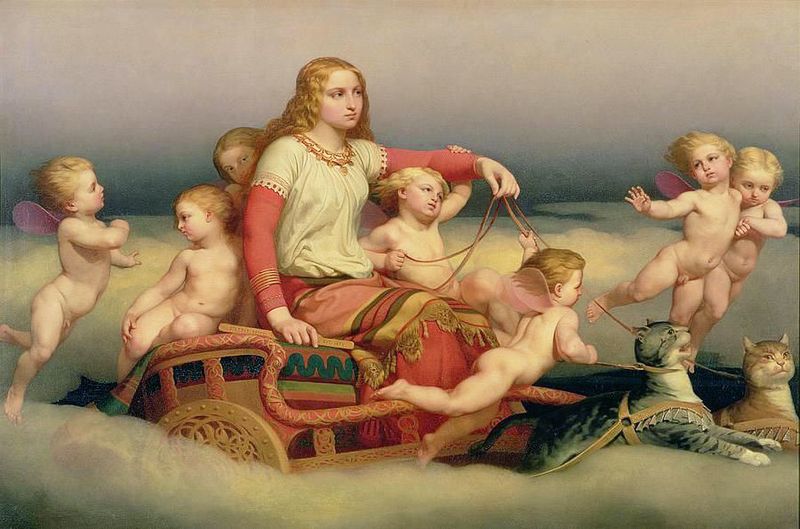 Freja Seeking her Husband
Freja Seeking her Husband
Featured Image Credit: Emil Doepler, Public domain, via Wikimedia Commons
